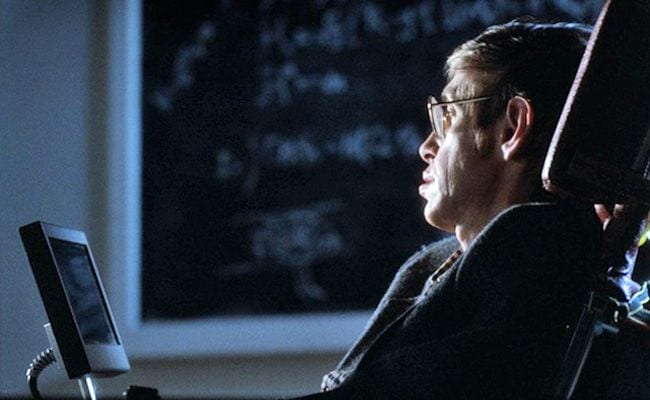
In latter years it has become so common for Errol Morris to do films about people or subjects he doesn’t like, that to watch a documentary where he actually seems to respect his subject and have some empathy for him is quite revelatory. Morris won the Academy Award for Best Documentary Feature for The Fog of War, a harrowing long format interview with former Secretary of Defense Robert McNamara in which he probes and questions the man who might’ve single-handedly led the United States to one of its most unnecessary and disastrous wars.
McNamara, who was well into his 80s when the movie was made, does not come out of it unscathed; his decisions now turning into harsh burdens he would take with him to the grave (he died in 2009, almost a full decade after the film was released). But by stating lessons to be found in his controversial life, Morris at least granted him the opportunity for a small redemption.
This is something he completely denies to the subject of his most recent film: Donald Rumsfeld. The former Secretary of Defense comes out looking like a cartoonish villain in The Unknown Known, practically a horror film in which he gloats about taking the United States to the Iraq War with all the joy of a child opening presents. Other of Morris’ recent projects have involved murderers and the terrible torture methods used by the American military in Abu Ghraib prison. To say the least, he’s been on a roll when it comes to showcasing the worst of human nature.
We’d have to go all the way back to 1997’s Fast, Cheap and Out of Control to find Morris actually amazed by the uniqueness of human nature, in a film that highlights four men with out of the ordinary professions (including lion taming and bug robot designer). Finding out what made him turn towards darkness in future films is perhaps just as fascinating a subject as his study of renowned physicist Stephen Hawking in A Brief History of Time from 1991. Borrowing the title from hawking’s most famous treatise, Morris turns his attention not specifically towards the revolutionary theories contained in the volume but also towards its creator.
Hawking has become one of the most iconic physicists of all time and even those who aren’t familiar with the specifics of his work, know him from appearances in popular culture like The Simpsons for example. Morris turns his camera towards Hawking, who due to his amyotrophic lateral sclerosis, communicates through a computer (using an electronic voice) while sitting in a wheelchair. Through several interviews with Hawking and several key players from his life, the director delivers an impressionistic take on a life that is perhaps more wondrous than it has any right to be.
Morris paints the picture of a young man who was bright and intelligent but who wasn’t precisely the best of students. Hawking himself describes his school years as lazy ones and the film then explores other events in his life including his marriage. It becomes clear at one point that Morris perhaps intended to explore the ideas more than the man, but like almost anyone else who attempts to tackle the book without much knowledge of the topic, he ran into an impossibly hard text, left to be best explained and interpreted by the man behind it.
As is, listening to Hawking describe the ideas behind his most complex theories is remarkable, perhaps partly because of how much of an icon he’s become in the years since the film was released or because Morris is so good at juxtaposing elements lacking in forced sentimentality. Hawking explains his views of living in a godless world by conceding that “if we do discover a complete theory of the universe, it should in time be understandable in broad principle by everyone, not just a few scientists. Then we shall all – philosophers, scientists, and just ordinary people, be able to take part in the discussion of why it is that we and the universe exist. If we find the answer to that, it would be the ultimate triumph of human reason. For then we would know the mind of God.”
This edition of the documentary by The Criterion Collection featuring a pristine new transfer highlights Morris’ abilities as a visual artist (his recreations of Hawking’s office, deserving a documentary all on their own) and also feature a new interview with the outspoken Morris whom seems equally fascinated by Hawking now as he was when he made the film. Also included is an interview with director of photography John Bailey and an essay by scholar David Sterritt. The oddities in the set are excerpts from Hawking’s memoirs and a chapter from A Brief History of Time, that remain so impenetrable that we feel the urgent need to revisit the film and see if we can decipher its meaning.


![Call for Papers: All Things Reconsidered [MUSIC] May-August 2024](https://www.popmatters.com/wp-content/uploads/2024/04/all-things-reconsidered-call-music-may-2024-720x380.jpg)



